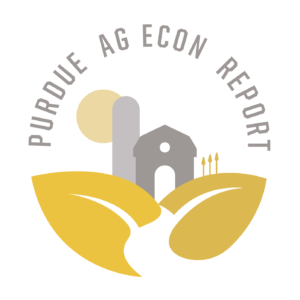The Desirability of Farming as a Vocation
March 16, 1991
PAER-1991-5
Author: Stephen B. Lovejoy, Associate Professor and Coordinator of the Center for Alternative Agricultural Systems
We all know that the number of farms in the United States has been declining from a peak of nearly 7 million in 1935 to only 2 million in the 1980s. The number of farmers has declined at a similar rate, and the number of farmers and their families as a proportion of the US population has gone from 70-80% to less than 3%. These trends are, of course, the result of increased productivity of the remaining farm families who have continued to provide us with abundant and relatively inexpensive supplies of food and fiber products.
Over the course of the last several decades, attempts have been initiated to slow this out-migration from the farms, often with little success. More recently, concern has been voiced about the future of American agriculture and whether present trends are desirable for our society. While I will not debate the desirability of present trends, more understanding of the motivations of those entering agriculture may be helpful in deliberations concerning public policies effecting agriculture.
As financial and other problems persist in agriculture, more and more observers question the desirability of farming as an occupation and as a lifestyle. Even the Future Farmers of America have changed their name to simply FFA in order to broaden their appeal to a greater number of young people. Some see these trends as indicative of a new age where farming is not a preferred occupation, and suggest that many of those best qualified to farm will pursue other types of careers. In order to assess the validity of such observations, it would be helpful to understand the pros and cons of farming as an occupation from the viewpoint of those engaged in farming.
Several years ago, while on leave with the U.S. Environmental Protection Agency (EPA), I had the opportunity to meet with two groups of young agricultural leaders. These groups were in Washington, D.C. to meet with a variety of agencies and congressional delegations. Will Erwin, a Hoosier farmer who was then the agricultural consultant to the Administrator of EPA, and I met with groups from Michigan and Indiana to give them an orientation to the activities of EPA and the potential impacts of these activities upon the agricultural sector and upon them as agricultural leaders. As part of these meetings, we asked these young agriculturalists to imagine that they were asked to advise a new college graduate about the desirability of pursuing farming as a vocation.
In their responses and subsequent discussions, we found their comments about the desirability of agriculture as an occupation extremely instructive in understanding the frustrations and rewards experienced by farm families. They all agreed that farming offers a great deal of independence and challenge. As one suggested, “The biggest advantage of going into farming is the opportunity to own and manage your own business, and to make your own decisions. Many people spend a lifetime dreaming about such a prospect.”
These young farmers also suggest that farming is as much a way of life as an occupation. One said, “Farming is important to me because of the lifestyle it offers.” Another said, “The non-financial benefits are tremendous: small community pride and friendship, less hurly-burly, and a connection with traditional values.” Many believe that a farm is a good environment in which to raise a family and to teach children responsibility, independence, fortitude, and hard work.
Many suggest that farming gives them an opportunity to observe the poetry of the life cycle and make a living outdoors: “It’s the experience of growing crops and raising livestock. I am out in the fresh air and working in a very natural environment.”
On the other hand, these young agriculturalists suggested that there are also a number of negative aspects to farming. Many mentioned lack of financial return and security. Several stated that long hours and the necessity of off-farm income to support their families were distinct disadvantages, especially as they cut into the amount of time spent with their families.
Others worry that, while farming is viewed as a healthy occupation, they have to deal constantly with hazardous chemicals posing significant health risks. Many young farmers insist that excessive government regulation has created new uncertainties, especially new types of constraints and possible liabilities linked to chemicals and fertilizers. “It’s too risky; society can change the rules overnight,” one complained. Another declared it is now too difficult to deal with financing and production regulations.
The same sentiment is at work in comments about the burden of escalating paperwork, greater risk, and rising stress. Many say that the occupation has become much too complex and requires a very high level of managerial skills in order to survive. Several have suggested that farming has changed from a way of life to a business, one with low margins, low returns on equity, and large capital requirements.
Farmers seem to feel that non-agricultural sectors are intruding more and more into agricultural decisions. Some say, “Many decisions made by the other 98% of the population are limiting the non-financial benefits so important to the choice of farming for a living.”
These responses from young agricultural leaders from Michigan and Indiana suggest that there are still many aspects to farming that make it a very desirable vocation. However, they also illustrate the frustrations encountered by the increasing complexity of farming and the increasing burden of regulations and paperwork, as well as concerns about health, safety, and financial security. Greater attention to the attitudes and concerns of agriculturalists will provide better information and hopefully better policies and programs which effect farmers and the entire agricultural community.
If society desires to maintain an agricultural sector composed of family farmers, we need to consider the impacts of policies upon the desirability of farming as a vocation and as a lifestyle.
